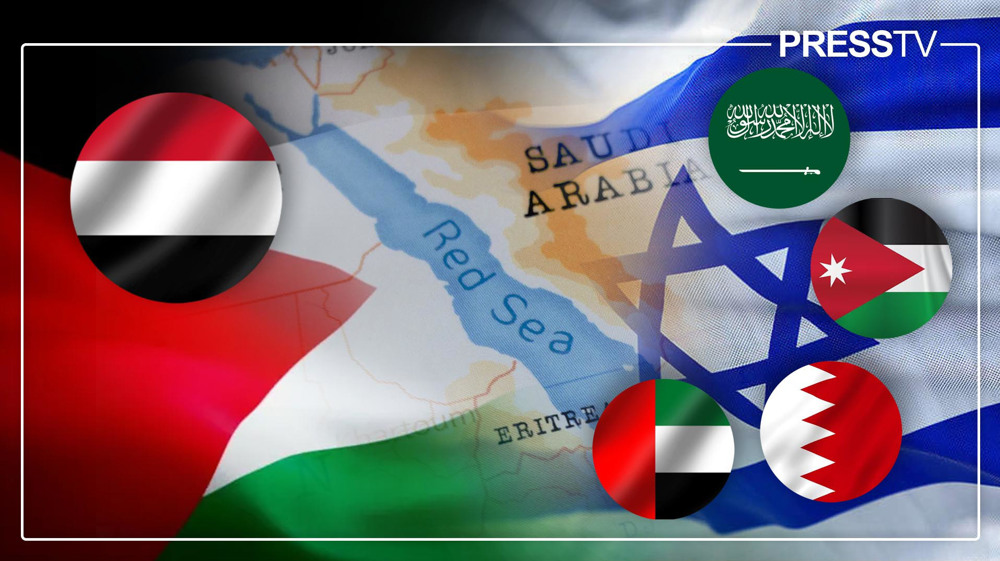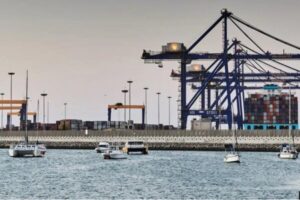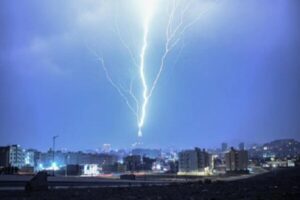By Shabbir Rizvi
Perhaps the best pages of history are the pages where the oppressed are victorious against the oppressor, and able to turn the tide of power with poetic justice.
Within these pages, true colors are always revealed, and the resolve of each player is truly put to the test. And if history is truly written by the victor, then this chapter owes some pages to be authored by the incredibly brave people and resistance of Yemen.
In the wake of the Hamas-led resistance operation Al-Aqsa Storm (also known as Al-Aqsa Flood), Yemen has dared to go where no other Arab countries have (outside of the Islamic resistance in Lebanon and Iraq) – not only directly confronting the Zionist entity, but enacting a crushingly successful blockade in the strategic zone of Red Sea.
Any ship willing to conduct business with the Israeli regime in Yemen’s territorial waters has two options – turn around, or risk your ship being destroyed or taken by the Yemeni military (Ansarallah).
One has to admire this act of poetic justice. Yemen, the country subjected to nearly a decade of US-Saudi blockade, enabled by Western states, which spawned the world’s worst humanitarian crisis in the Arab country – has now enacted a blockade of its own – squeezing the already depleting Zionist economy.
Anyone familiar with the societal structure of the Zionist occupation can tell you that its economy is extremely vulnerable to external shocks. This is a regime that has only lasted as long as it has due to the political and economic support of the US capitalist class.
Billions of US taxpayer money is spent annually to keep the illegitimate entity afloat. Meaning the Zionist occupation has to ensure it is justifying this staggering investment.
For the US ruling class, Israel acts not only as a colonial military outpost but as a corridor into Asia. They need Zionist cooperation to facilitate the trade of goods coming in and out of the region, facilitating billions of dollars of goods annually.
Yemen has decided that it will not tolerate Israeli trade while Gazan children and women are being mercilessly slaughtered every day.
Starting in November, the Yemeni military began to seize Israeli-connected ships – starting with the seizure of the “Galaxy Leader.” Outside of ship seizures, other ships were subject to drone, rocket, and gunboat attacks – including the US Navy destroyer USS Carney.
Israeli-occupied port of Eilat – its third biggest – has effectively been shut down amid Yemeni rockets and drones, and its blockade in the Red Sea. Traffic at the port is reportedly down by 85%.
This is no small blockade. Global shipping companies are thinking twice about dealing with the regime. Hong Kong shipping company OOCL has halted all trade with the Israeli regime. Maersk, one of the biggest global shipping companies, has also decided to pause operations, joining a few other companies. Other shipping companies have also followed suit.
Initial projections estimate billions of dollars of trade has been impacted. Yemen’s blockade is driving the cost of goods up and increasing the amount of transport time.
Some Israeli-linked ships have even decided to go around Africa into Asia, adding anywhere from two to three extra weeks of shipping time.
And most importantly, the economic impact caused by the crippling blockade is creating serious political pressure. British Petroleum on Monday announced it would stop operations using the Suez Canal due to the Yemeni threat.
Mere hours after this announcement, UK Labor Party leader Keir Starmer joined UK Prime Minister Rishi Sunak in calling for a “sustainable ceasefire” in Gaza, effectively breaking from the US line.
Yemen is forcing the world to divest from the regime in Tel Aviv or suffer major economic consequences. And it’s working.
Now, Zionists and its US backers are tapping into their regional partners. The very countries that sought to break Yemen – the UAE and Saudi Arabia – are now creating a “land bridge” trade route with the Zionist entity, as per reports.
Though this is more costly and slower, the same resources are now passing from the UAE into Saudi Arabia and Jordan in order to reach the occupied territories.
The 2000-kilometer path is already being put to the test, with a reported 10 trucks already taking the path from Dubai to the border of Israeli-occupied territories.
This is a clear attempt to circumvent the Yemeni blockade. Jordanian leadership quickly moved to deny the existence of such a “land bridge” as it is a shameful accusation- however, it is indeed a willing participant in the trade of goods with the apartheid regime.
The treachery of these Arab regimes is another betrayal of the Palestinian people. These same countries waged war on Yemen’s independence movement, and now they are participating in the war against Palestinians by aiding the Zionist enemy.
Yemen has forced these regimes to show their true orientation.
Even more tellingly, the Saudi regime has assisted the US and Israeli regime in blocking Yemeni missiles and drones with its air defense systems. Rockets meant for the port of Eilat were reportedly shot down by Saudi missiles, protecting not only Israeli goods but also US warships.
The Gulf monarchies insist that they demand “regional stability” while allowing the Zionist regime to conduct open genocide in front of the world.
However, the US is not satisfied with a land bridge. Some goods cannot be transported through the land bridge, and it is pricier to switch between sea, land, then back to sea when transporting goods from the US to Asia, for example.
On Monday, December 18, US Defense Secretary Lloyd Austin announced “Operation Prosperity Guardian” – a ten-country coalition that would fend off the “Yemeni threat” in the Red Sea.
It’s clear that the blockade is putting economic pressure on the US – the operation’s name says it all. But can the coalition, which includes Bahrain (adding another country to the list of Arab nations stabbing Palestine in the back), actually stop the Yemen-created blockade?
Not without risking a full-scale regional war. First, Yemen is more than capable of defending itself. It fended off a Saudi-led coalition for ten years, which used US weaponry and logistics.
It can certainly defend its own territorial waters and skies against invading forces.
Second, the coalition threat is a serious step up the escalation ladder – one that would have serious consequences for US forces and allies that are unwelcome in the region.
Last week, Iran’s Defense Minister Mohammad Reza Ashtiani issued a statement declaring that any attempt by the US to form a coalition that disrupts peace in the region “will be faced with tremendous problems.”
“Nobody can make a move in a region where we have predominance,” he asserted.
In recent months, Iran has had several encounters with US naval boats that attempted to encroach its territorial waters. This comes as a result of US military ships posing a threat to Iranian oil tankers and other ships – resulting in Iran tightening security within its territorial waters.
Hypocritically, the same country that decries Yemen’s blockade also openly participates in the piracy of Iranian oil!
The US-led coalition is foolishly risking a regional war. Ultimately, this would not be in the US key interests – and the popularity of the Biden administration would sink even more – even with it being at an all-time low.
The threat of the coalition as of now is just policy on paper, but if materialized could yield catastrophic results.
The United States is already the main protagonist in the Gaza genocide. By supplying bombs that drop on Gaza every day as well as political backing, it cannot wash its blood-stained hands.
But if it insists on going the extra mile and pulling itself into a regional war over a trade route, then all bets on peace are off.
The attacks on US military bases would escalate. US ships would be targeted. US citizens and ambassadors would have to be evacuated. And trade that has already come to a screeching halt would be prolonged further. All on the eve of an election year.
The reality is that Yemen has the imperialist West right where it wants it. Either end the barbaric aggression on Palestinians in Gaza or face economic and political ruin.
It is very rare in times like this that peace sells – but is the US buying? Time will tell.
Shabbir Rizvi is a Chicago-based political analyst with a focus on US internal security and foreign policy.
(The views expressed in this article do not necessarily reflect those of Press TV)




